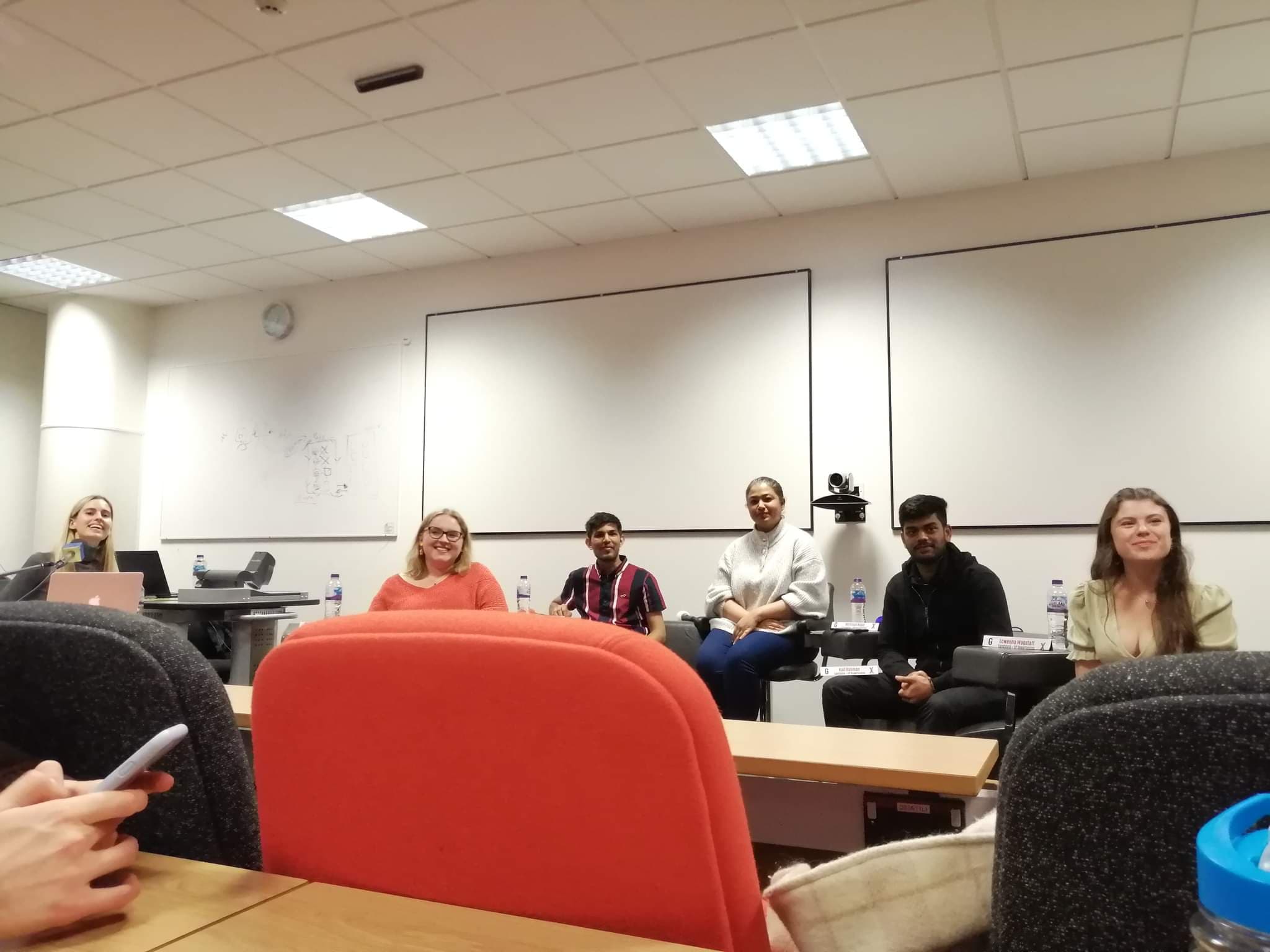
The first of the Guild Election debates took place on Wednesday 9 March with the five candidates running for VP Opportunities.
The debate, hosted by XpressionFM, saw Izzie Dyer, Mehreen Nasir, Kaif Ur Rahman, Johna Aswan Selva, and Lowenna Wagstaff speak on a variety of issues such as accessibility on campus, student welfare, and how the Guild should handle ‘controversial’ speakers.
Before the debate began, the candidates were invited to introduce themselves and explain why they were running for the post. Izzie told the audience: “I am running for VP Opportunities because I’m passionate about creating meaningful changes at the university.” Lowenna and Johan both emphasised their commitment to inclusivity while Mehreen focussed on her desire to provide “more opportunities for international and mature students.” Kaif said he wanted to “take people from where they are to where they want to be.”
When the candidates were asked what they believed the role entailed, Mehreen and Izzie highlighted that it was an important tool for giving a “voice” to students. Izzie focussed on giving a voice to “students from a huge range of backgrounds,” while Mehreen wanted to provide accessibility and give students “the opportunity to express their concerns.”
Laura Martinez-Williams from XpressionFM proceeded to ask the candidates what they believed the main concerns of students were with regards to opportunities on campus. Lowenna argued that the student body needed “accountability,” from the VP for Opportunities. She said: “It’s about representing the views of the students and putting pressure on when it’s needed.” Johan focussed on the need for “active listening,” while Mehreen argued for “visibility” for international and postgraduate students.
The candidates’ also outlined how they would solve student wellbeing issues. Lowenna expressed a desire to use her position to encourage the University to increase welfare funding while Izzie emphasised a need for clearer signposting to welfare societies like Nightline. Mehreen stated she would “introduce compulsory wellbeing sessions.” Johan called for better overall wellbeing support, while Kaif wanted more support for students with “monetary problems.”
On the subject of inclusion, Lowenna argued for “lower membership fees” for societies so that students from all financial backgrounds could get involved. Izzie said visibility was a barrier to access, calling for better advertising of society events. “The problem is people don’t know what’s happening.”
Lowenna and Izzie were particularly passionate when discussing student concerns around sexual harassment, with Lowenna arguing that the Guild needed to give more training to society committees for how to deal with issues such as spiking. She said: “We need to tell them what to do in the moment and ‘this is who we contact.'” Izzie focused on holding nightlife venues accountable, and emphasised that, “the onus for spiking needs to be on spikers, because they are the ones to blame.”
The speakers had different approaches on how to navigate concerns between freedom of speech and hate speech.
Mehreen argued that “I believe there is no voice that is harmful,” and said “there needs to be more awareness sessions to understand different perspectives. Ideally I’d hear good and bad, positive and negative, and make my own opinion.” Lowenna highlighted the difficulty in defining what was free speech and what was hate speech. “We need to define what hate speech is.” She suggested that privilieged students may not immediately identify hate speech as hate speech, because they are less likely to be the targets of such speech. Izzie agreed with this point, adding that, “there is a lot of confusion around the constraints on the Guild,” in terms of its speaker policy. She argued it was important to have Guild transparency, so “people know what is in the Guild’s remit or not.”
When asked about disability access on campus, Mehreen, Izzie, Johan, and Lowenna all suggested that societies needed to make provisions for disabled students. Izzie emphasised that online social events may be more accessible to disabled students, but accessible in-person socials are also needed. Lowenna agreed. “Societies need more training on how to be aware of more accessiblity issues.” Johan said he aimed to “speak and reach out to people with disabilities.”
This was the first debate in a series of Guild Election debates hosted by XpressionFM. Two more debates will take place on Thursday – with the VP Education candidates at 7pm and the Sports President candidates at 8pm. The final debate will be on Friday at 7pm with the Guild President candidates. The debates are being streamed live on XpressionFM and can also be followed via Exeposé’s live Twitter coverage over at @ExeposeNews.
Editor: Orla Mackinnon


